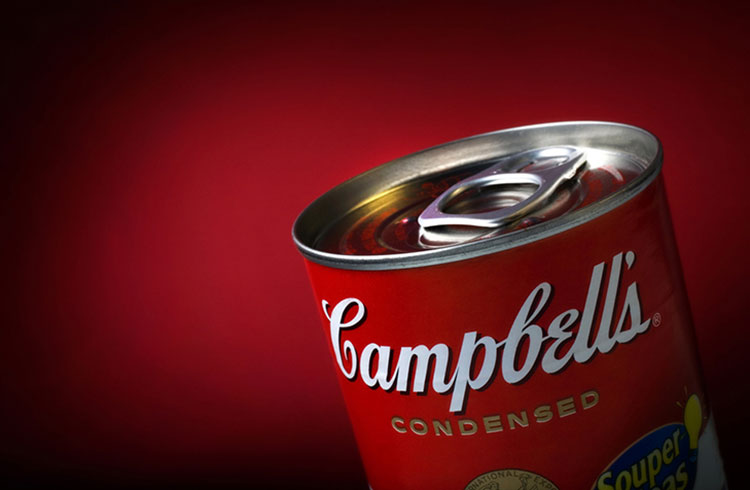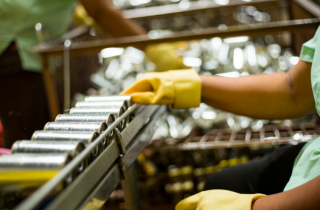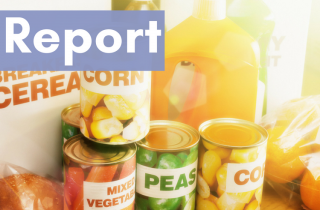Market Actions on BPA
At a Glance
BCPP is at the forefront of educating the public and policymakers about the dangers of bisphenol A (BPA). Since 2006, the visibility and pressure created by BCPP and allies, along with emerging science, has brought BPA to the center of the federal debate on toxic chemicals. We have gradually moved the market away from the use of BPA in baby bottles, sippy cups, infant formula packaging and sports water bottles.
Cans Not Cancer Campaign
BCPP’s Cans Not Cancer campaign launched in 2011 to build the public and political will necessary to drive BPA out of the lining of canned foods and more strictly regulate unsafe chemicals in food packaging.
Cans Not Cancer puts public pressure on canned food manufactures to stop lining cans with BPA in favor of safer alternatives.
Campaign Platform
The goal of BCPP’s Cans Not Cancer campaign is to ensure safe and healthy food packaging for everyone. To keep potentially harmful substitutes off the market, Cans Not Cancer calls on all can manufacturers to commit to the following actions:
- Eliminate BPA from all food packaging and establish timelines and benchmarks for the transition to safer alternatives.
- Report their plan to find a comparatively safer alternative with a timeline for full hazard disclosure.
- Label all chemicals used in can liners, including BPA or BPA alternatives.
- Shift to safer, alternative packaging where possible while seeking a safe BPA alternative.
- Demand their suppliers of can linings fully disclose safety data so as to provide a higher level of transparency to consumers.
- Take the GreenScreen Challenge and assess potential human health and environmental hazards of BPA alternatives they are considering or already using to line canned foods.
Consumers have the right to know, at the point of purchase, if the food cans they are buying contain BPA or alternatives, and whether these packaging additives have been tested for safety. This information is necessary so that consumers can make safe and informed choices for themselves and their families. Safer packaging is currently available for many types of foods (e.g., glass containers, paperboard-based packaging). Manufacturers should commit to shifting packaging to safer forms where possible until safe replacements for BPA in cans can be developed.
Targeting Campbell’s
The primary corporate focus of BCPP’s Cans Not Cancer Campaign is Campbell Soup Company, a leader in the canned food industry grossing over $7.9 billion in sales annually. A snapshot of our investigation into and advocacy directed toward Campbell’s includes:
- In product tests conducted in 2010 and 2011, BCPP found BPA in Campbell’s canned food products.
- In 2011, the Cans Not Cancer Campaign generated 70,000 letters to the Campbell’s CEO demanding the multinational giant stop lining their food cans with BPA and replace it with a safer alternative.
- After months of pressure from consumer, public health and concerned parents’ organizations, in 2012 Campbell’s Soup Company announced on a shareholder earnings call that it would phase out the use of BPA in its can linings. However, the company did not provide a timeline or identify what alternative can-lining materials it will use.
- Most recently, BCPP’s March 2016 Buyer Beware Report: Toxic BPA and Regrettable Substitutes in the Lining of Canned Food found 15 out of 15 Campbell’s cans contained BPA-based epoxy, even though the company claimed to be making significant progress in its transition away from BPA.
- Upon learning about the Buyer Beware report, Campbell’s announced they would eliminate BPA in North American cans by mid- 2017. We are pleased that Campbell’s finally made good on this promise by eliminating BPA from all of its soup can linings sold in North America, as of July 31, 2017.
While we applaud this action as a step in the right direction, there is more the multinational food giant needs to do to ensure Campbell’s soup is truly safe for everyone, including:
- Adopt a time frame for a global phase-out of BPA. Campbell’s sells in 120 countries around the world and should make a commitment to making the safest cans possible everywhere they do business.
- Practice informed substitution. Publicly disclosing the safety of their BPA alternatives is a key step from a business and public health perspective toward informed substitution. Consumers want BPA-free food cans that are truly safer, not food cans lined with BPA-alternatives that may be equally or even more toxic.
- Adopt a formal safe packaging chemical policy. BPA is not the only chemical of concern used in food packaging – styrene, phthalates, perflourinated chemicals and vinyl chloride are just a few of the other unsafe chemicals that can and do show up in our food packaging. Campbell’s should adopt a company-wide safe packaging chemical policy to guide their review and safe substitution of other chemicals of concern in their food packaging. Such a policy would show Campbell’s commitment to continually earning consumer’s trust and addressing unsafe chemicals in food packaging.
Campbell’s website already identifies products that are GMO-free or free of high fructose corn syrup or MSG. The need for disclosure on packaging and online is consistent with the growing demand for greater transparency and consumer-right-to-know in the food and consumer products arena. We applaud this important move on Campbell’s part and also enthusiastically support Campbell’s recent decision to withdraw from the Grocery Manufacturers of America because of a clash in values on the issue of transparency. This trade association continues to publicly and aggressively block consumer right-to-know and ingredient disclosure legislative advocacy efforts on the state and federal level.
We know Campbell’s can continue to do better. That’s why Cans Not Cancer urges Campbell Soup Company to expand their plan to transition away from BPA in North American food cans to include the rest of the 120 countries where they sell canned foods and practice a higher level of transparency. As consumers learn more about the toxic chemicals they are being exposed to in everyday items, the potential health impacts and the lack of federal oversight, they speak with their pocketbooks by demanding safer products. And the market listens. Cans Not Cancer is about our health, our children’s health, and a safer future in which breast cancer rates have dropped because we’ve reduced our exposure to toxic chemicals.
Click here to read our blog post, Drum Roll, Please: No Estrogenic Activity Found in Tests of New Replacement for BPA in Food Can Linings.
Types: Article





